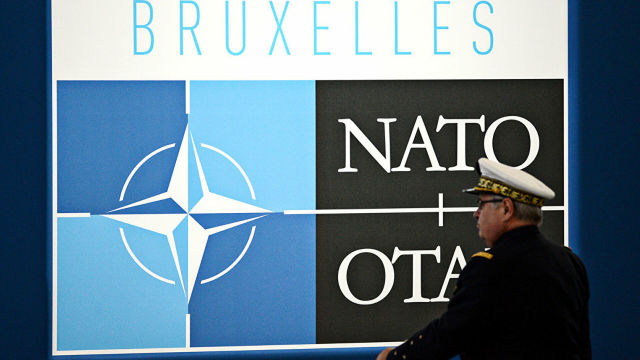MOSCOW, February 8-RIA Novosti. Russian military scientists have proposed a variant of the combat use of the Aerospace Forces( VKS), which will provide guaranteed protection against a possible multi-sphere operation of NATO, a new approach is presented in the journal "Aerospace Forces. Theory and Practice", published by the Military Training and Research Center of the Air Force (Air Force).
NATO and the United States have previously developed the concept of multi-sphere combat operations, which will take place immediately on the ground, at sea, in the air, in space and in cyberspace. These operations, according to the plan of the US military, will begin with an integrated massive air strike in order to disable the enemy's nuclear facilities, the most combat-ready units, command and communication centers, energy, and so on in a matter of hours.
As Vladilen Stuchinsky, Doctor of Military Sciences, and Mikhail Korolkov, Candidate of Military Sciences, note in their article, NATO assumes that within the framework of such strikes, it will simultaneously bring down hypersonic, operational-tactical and cruise missiles on the enemy, use attack drones and then manned aircraft, which will suffer almost no losses.
To disrupt the likely multi-sphere operations, the authors suggest that the military launch a counter or pre-emptive strike by the VKS forces, which will involve all means in a single reconnaissance and strike space, and which will cause unacceptable damage to the enemy already at the initial stage of its aggression.
Until 2025-2040, the authors of the study write, the typical elements of the domestic reconnaissance and strike system will be aircraft, helicopters, cruise and ballistic missiles for tactical and operational-tactical purposes, drones, and so on. As a concrete example of the elements of the system, the publication names hypersonic missiles "Dagger", the carriers of which today are MiG-31K aircraft.
Based on the speech of the Chief of the General Staff of the Armed Forces Valery Gerasimov at the conference of the Academy of Military Sciences, given the defensive nature of the Russian military doctrine, the authors consider the most important principle of parrying possible aggression to be preventive actions ("one step or two ahead"). That is, with the threat of a local war, scientists believe, Russia should be able to move from a policy of nuclear deterrence to inflicting a preventive unacceptable defeat on the enemy with all types of weapons.
The failure of an integrated NATO strike from the very beginning will lead to the failure to achieve the goals of the" multi-sphere operation", and the leadership of the military bloc with a guarantee will refuse to carry it out further, the authors emphasize.

